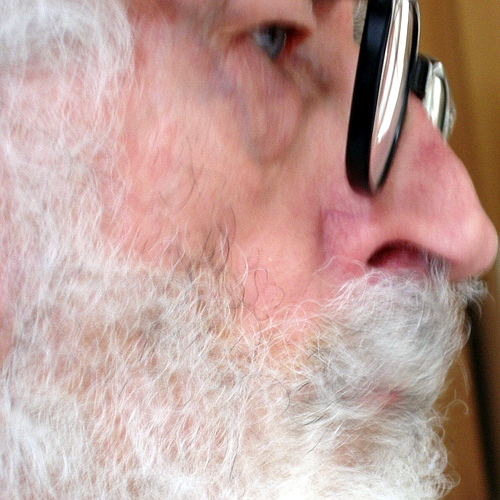Jafar Sharif-Emami in Exile

Sharif-Emami's memoirs were recorded by me during three sessions lasting a total of nine hours on May 13, 1982 and May 12 and 24, 1983 at his apartment in New York City. Although I had met Mr. Sharif-Emami a number of times before the Revolution, I had not seen him since then.
In April 1982, while in New York City, I obtained his telephone number from a mutual acquaintance, called, and asked to see him. He invited me to his home. He lived on the East Side in a modern building in which he occupied an apartment on one of the top floors. At the initial meeting, I told him about our project to collect the oral history of Iran and he agreed to participate. He had certain conditions, however. He said, for instance, "I'm not going to discuss personal matters relating to the Shah or his sister." I said we wanted him to be comfortable with whatever he said.
In early May 1982, I telephoned him again and arranged to go to his apartment at 9:30 A.M., Thursday, May 13 to begin recording his memoirs. All three recording sessions took place with the two of us alone in his study. His study was furnished with a desk, a large sofa and a couple of leather chairs. Facing the sofa was a bookcase filled with perhaps 100 to 150 books, mostly on Iran. Before we began recording his memoirs, he told me that he had left nearly 11,000 books in his house in Tehran which, along with the house, he had offered to give to the new government to be designated as a public library. He had also offered certificates of deposits in a Tehran bank, income from which was to be used to maintain the library. He had sent this proposal to the Revolutionary Council through his wife who was still in Tehran. The Council had accepted his gift and conditions, according to Mr. Sharif-Emami, and the agreement had been implemented for a few months before the books were transported to Qom and the house was confiscated for other uses.
Mr. Sharif-Emami also spoke of having kept a diary for the preceding thirty years, containing notes regarding various appointments in Iran and meetings and discussions around the globe as president of the Senate and prime minister. He was very dismayed that he had not brought these notes out with him. He said, "I knew there was going to be a revolution, but I didn't think the revolution was going to be so extensive as to affect things such as my diary and memoirs-because I did have the chance to bring them out but didn't think of it. And later when I wrote my daughter and asked her to send these notes to me, she told me that during one of the initial inspections of the house, the revolutionary guards had spotted these notes because they were hand-written and had taken them." He was wondering whether the notes were still available or whether they had been thrown away or destroyed. This reminded me of similar regrets expressed in his interview by Mr. Abolhassan Ebtehaj who had kept notes for decade-the essence of his work and his meetings and his career which were no longer available to him to use to write his memoirs.
Mr. Sharif-Emami told me that his daily routine consisted of going to bed at midnight and waking up at 6 A.M. After reading the morning newspaper, he would begin work in his study in the same serious way he had in Iran prior to the revolution. Part of his day was spent learning Spanish. He repeated what many other narrators had told me: the revolution had forced him into retirement. Otherwise he would still be carrying on his long daily work schedule.









